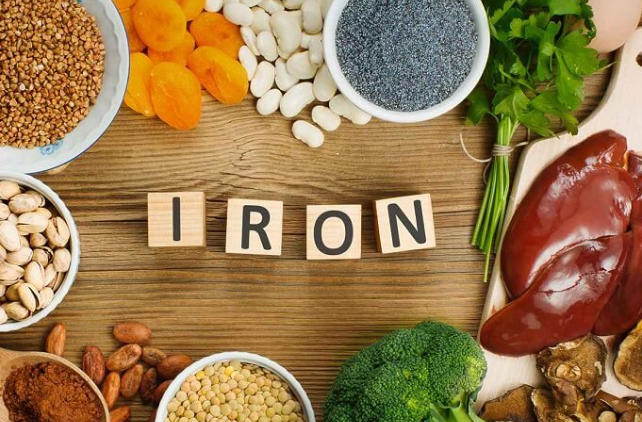Iron folate for health
Iron folate for health – It is one of the lesser-known folate vitamins that we rarely hear about in medical tests or treatment issues, but experts know how important it is for the body. Stay with us until the end of this article so we can learn what are the sources of folate and what are the symptoms of folate deficiency?

Iron folate : what is it?
An iron supplement is used to treat or prevent low blood iron levels (such as those caused by anemia or pregnancy). The body needs iron to make red blood cells and stay healthy.
To maintain optimal health, our bodies need iron and folate. In order to produce hemoglobin and carry oxygen around the body, they work together to help our red blood cells function properly.
Folate is actually a natural form of vitamin B9. Folate derives from the Latin word folium, meaning leaf. Nature’s most important source of folate is tree leaves. The digestive system is responsible for converting folate into its active form, which is then used in the body.
Folic acid: what is it?
Iron folate – Pharmaceutical supplements contain folic acid, a synthetic form of vitamin B9. Folic acid, unlike folate, is not converted into its active form in the digestive system, but rather in other tissues.
How does folate play a role in the body?
Synthesis and regeneration of DNA
The division of cells
Red blood cells maturation
Contributing to the formation of “methionine”. Proteins are made from amino acids such as methionine.
How does a folate deficiency affect the body?
A lack of folate can cause a series of health problems such as megaloblastic anemia, heart disease, and birth defects in babies whose mothers had a folate deficiency during pregnancy.
Vitamin B9: what are the healthiest sources?
Foods containing folate are the best sources of vitamin B9.
Folate is found in spinach, lettuce, asparagus, Brussels sprouts, and avocados. Among pregnant women, folate supplements are the safest way to get enough.
Iron folate – What is the daily requirement for vitamin B9?
For different ages, the recommended amount is:
In the first six months of life: 65 micrograms
Between the ages of 7 and 12 months: 80 micrograms
In the first three years of life: 150 micrograms
Between the ages of 4 and 8: 200 micrograms
Between the ages of 9 and 13: 300 micrograms
Between the ages of 14 and 18: 400 micrograms
400 micrograms for adults
Women who are pregnant: 600 micrograms
Women who are lactating: 500 micrograms
How can a folate deficiency be caused?
Inadequate folate intake through food consumption
Disruption of folate absorption in the digestive system caused by diseases or surgery. Celiac disease and gastric surgery, for example
A condition in which stomach acid is produced very little or not at all (achlorhydria).
Methotrexate and sulfasalazine interfere with folate absorption
Addiction to alcohol
An expectant mother
Anemia due to hemolysis
The dialysis process
Folate deficiency symptoms include:
As folate is essential for the formation and maturation of red blood cells, its deficiency prevents DNA synthesis, resulting in a lack of oxygen in the body. Symptoms of folate deficiency include:
Lack of red blood cells causes anemia
Irritability, fatigue, and weakness
Having a headache
Breathing difficulties
Concentration problems
A lack of folate in the body can cause small ulcers in the mouth or on the tongue, discoloration and pallor of the skin, discoloration of the nails, and premature graying of the hair.
Iron folate – People usually have a slimming diet and a varied diet, and folate is found in many plant and animal sources; Therefore, people usually do not suffer from folate deficiency symptoms; But people who use the wrong diet, for example, are addicted to alcohol, or their diet does not include a variety of fruits and vegetables, or have problems with their digestive system, such as: celiac disease and inflammatory bowel diseases, may be due to folate deficiency in suffer from the effect of not absorbing it properly.In the early stages of pregnancy, women also need a large amount of folate, and not paying attention to this issue can reduce it in the mother’s body and cause problems for both her and the baby.


